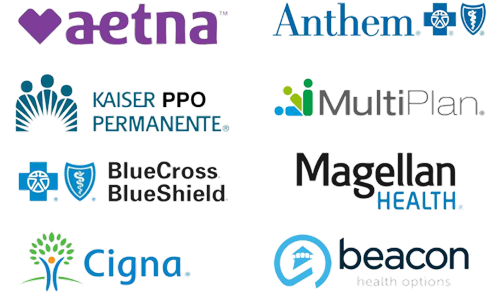Frequently Asked Questions
Does insurance cover treatment?
Most private health insurance will cover the cost of treatment, depending on policy details. Please check your insurance at https://synergyhills.com/insurance-verification/ to identify if your insurance will cover the cost of treatment.
Can friends or family visit me while in treatment?
Can I keep my job while attending treatment?
Can I bring my cell phone or computer?
Can I smoke cigarettes in treatment?
Will I need money during my stay?
How long does treatment take? What are the stages of addiction treatment?
The first 7 days of treatment are usually spent in detox. This level of care is supervised by medical personnel, and the focus is preventing and minimizing the painful effects of withdrawal. Once the body is relieved of physical withdrawal symptoms, the next level of care is residential inpatient, which is typically about 30 days. At the inpatient level of care, the focus is emotional and mental healing. The psychiatrist ensures your mental health is stable, clients learn to understand trauma and other causes for the seeking of substances, and preparation is made to prevent relapse via identification of triggers and erection of a support system.
After detox and inpatient treatment, clients transition to outpatient care. In outpatient care, clients live in a sober living environment and attend the treatment facility during the day. This level of care provides freedom while maintaining the supervision of addiction experts. Outpatient treatment typically lasts about 60 days.
Can I still take my regular medications while in rehab?
What type of issues do you treat?
At Midas, we offer dual diagnosis treatment to address both substance use and co-occurring mental health disorders.
We treat nearly every substance use addiction. Some examples include alcohol, amphetamines, opiates such as heroin and fentanyl, prescription drugs, benzodiazepines, synthetic drugs, and cocaine.
Some examples of mental health disorders we treat are mood disorders like depression or bi-polar disorder, anxiety disorders like post-traumatic stress disorder, psychotic disorders such as meth-induced psychosis or schizophrenia, personality disorders such as narcissism, and other disorders such as anorexia and insomnia.
Do you treat co-occurring mental disorders?
Can you help with transportation?
What outdoor activities and outdoor recreation can be expected?
What holistic programs are provided in treatment?
How often will I see the doctor?
How often will I see a therapist?
Most Insurance Accepted
We know that insurance coverage can be a real source of uncertainty for people, and we want to make sure you have all the information necessary. The great news is health insurance covers the total treatment costs. Even If you don't have insurance, we offer low cash payment options for our treatment programs. We are committed to working with individuals who need treatment regardless of their financial situation.








